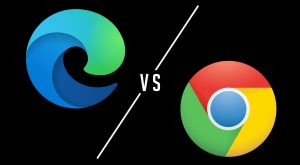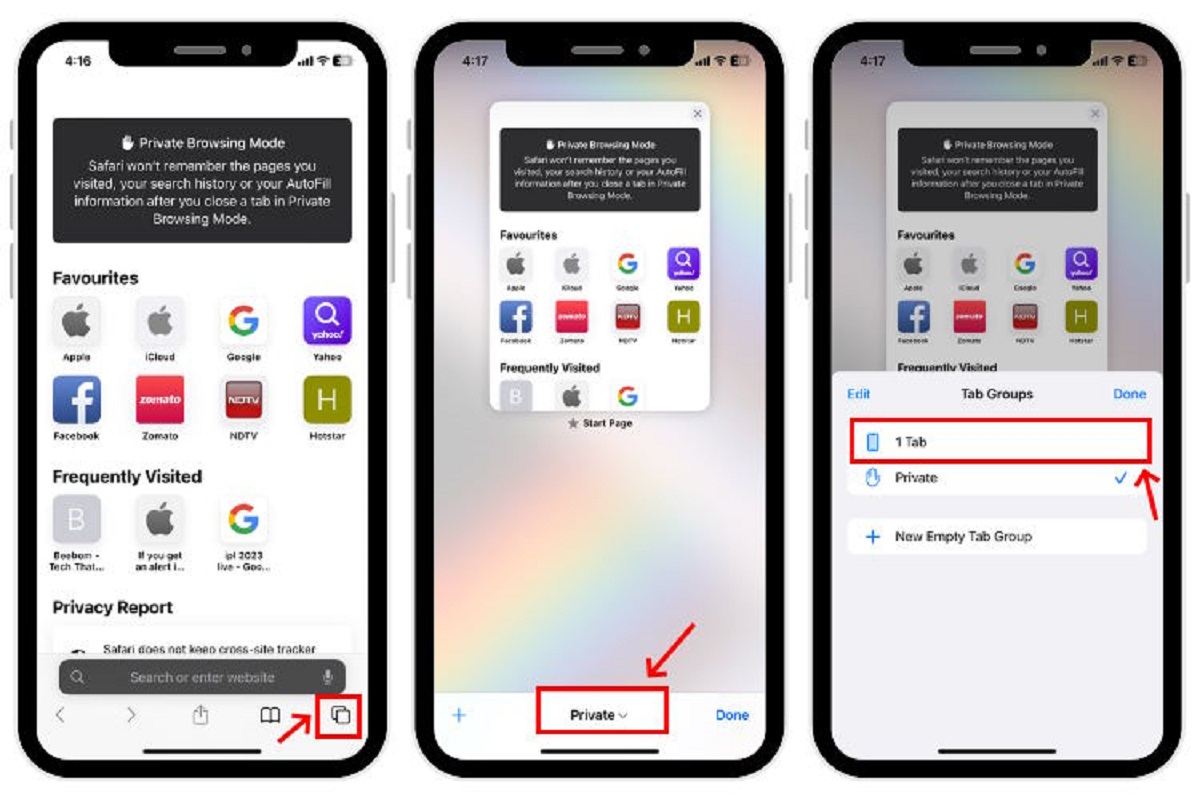Introduction
In today's digital age, web browsing has become an integral part of our daily lives. However, as we navigate the vast expanse of the internet, our online activities are often tracked by various entities, including advertisers, data brokers, and even malicious actors. These trackers gather information about our browsing habits, preferences, and online behavior, creating a detailed profile of our digital footprint.
The pervasive nature of online tracking raises concerns about privacy, security, and data protection. As a result, many users are seeking effective ways to safeguard their online privacy and prevent unauthorized tracking. One popular web browser, Google Chrome, offers several methods to block trackers and enhance user privacy.
In this article, we will delve into the world of online trackers, exploring their functionality, the associated risks, and most importantly, how to effectively block them on Chrome. By understanding the mechanisms of online tracking and implementing the right tools and techniques, users can take proactive steps to protect their digital privacy and enjoy a more secure browsing experience.
Let's embark on a journey to uncover the inner workings of online trackers and discover the empowering solutions that Chrome provides to mitigate their impact. By the end of this article, you will be equipped with the knowledge and tools to fortify your online privacy and take control of your digital footprint.
Understanding Trackers
Online trackers are sophisticated tools used to monitor and record users' online activities. These trackers come in various forms, including cookies, pixels, scripts, and fingerprinting techniques, and are employed by websites, advertisers, and data brokers to gather valuable insights into user behavior. By tracking users across different websites, trackers can create detailed profiles, encompassing interests, preferences, and even personal information.
Types of Trackers
-
Cookies: These are small pieces of data stored on a user's device by websites. They can track user activity, remember login credentials, and personalize the browsing experience.
-
Pixels: Also known as web beacons, pixels are tiny, invisible images embedded in web pages to track user interactions and gather data for analytics and advertising purposes.
-
Scripts: Websites often use scripts to collect data on user behavior, such as mouse movements, clicks, and keystrokes, providing insights into user engagement and interaction patterns.
-
Fingerprinting: This technique involves collecting information about a user's device, such as browser type, operating system, and plugins, to create a unique identifier for tracking purposes.
Functionality of Trackers
Trackers serve multiple purposes, including targeted advertising, website analytics, and user behavior analysis. Advertisers use trackers to deliver personalized ads based on users' browsing history and interests. Meanwhile, website owners utilize trackers to analyze user engagement, optimize content, and enhance the overall user experience.
Privacy Implications
While trackers offer benefits in terms of personalized content and targeted advertising, they also raise significant privacy concerns. The extensive tracking of user behavior can lead to the unauthorized collection of sensitive information, potential data breaches, and the creation of detailed user profiles without explicit consent.
By understanding the various types and functionalities of online trackers, users can gain insight into the pervasive nature of online tracking and the potential risks associated with it. Armed with this knowledge, users can take proactive steps to mitigate the impact of trackers and protect their online privacy.
Risks of Trackers
Online trackers pose a myriad of risks to users, encompassing privacy infringements, security vulnerabilities, and potential exploitation of personal data. Understanding these risks is crucial in comprehending the implications of unchecked online tracking and the importance of implementing effective countermeasures.
Privacy Infringements
One of the primary risks associated with online trackers is the infringement of user privacy. Trackers have the capability to collect extensive data about users' online activities, preferences, and behaviors without their explicit consent. This unauthorized data collection can lead to the creation of detailed user profiles, potentially including sensitive information, without users' knowledge. Such practices infringe upon individuals' right to privacy and raise concerns about the ethical use of personal data.
Security Vulnerabilities
The proliferation of online trackers introduces security vulnerabilities that can be exploited by malicious actors. Trackers often rely on various technologies, such as cookies and scripts, to gather user data. However, these technologies can be manipulated to track users across different websites, potentially exposing them to security threats, including cross-site scripting (XSS) attacks and data breaches. Furthermore, the extensive data collection facilitated by trackers increases the risk of unauthorized access to sensitive information, posing a significant threat to user security.
Data Exploitation
The data collected by online trackers can be exploited for various purposes, including targeted advertising, user profiling, and even unauthorized data sharing. Advertisers and data brokers leverage the information gathered by trackers to deliver personalized ads and create detailed user profiles for targeted marketing. However, the exploitation of user data extends beyond advertising, as it can also lead to the unauthorized sharing of personal information with third parties, potentially compromising user privacy and exposing them to unwanted solicitations.
Lack of Transparency and Control
Another risk associated with online trackers is the lack of transparency and user control over data collection practices. In many cases, users are unaware of the extent to which their online activities are being tracked and the specific entities involved in data collection. This lack of transparency undermines users' ability to make informed decisions about their online privacy and limits their control over the use of their personal data.
By recognizing the risks posed by online trackers, users can gain a deeper understanding of the potential implications of unchecked tracking practices. This awareness underscores the importance of implementing effective strategies to mitigate these risks and protect user privacy and security while browsing the web.
How to Block Trackers on Chrome
Google Chrome offers several effective methods to block trackers and enhance user privacy. By leveraging built-in features and utilizing browser extensions, users can take proactive steps to mitigate the impact of online tracking and safeguard their online activities. Here are the key strategies to block trackers on Chrome:
Using Browser Extensions
Chrome provides a wide array of browser extensions specifically designed to block trackers and enhance user privacy. These extensions offer comprehensive tracking protection, blocking cookies, scripts, and other tracking elements from various websites. Popular extensions such as uBlock Origin, Privacy Badger, and Ghostery empower users to customize their tracking protection settings and effectively prevent unauthorized data collection. By installing and configuring these extensions, users can significantly reduce the impact of online trackers while browsing the web.
Adjusting Chrome Settings
Chrome's settings menu includes options to control and block trackers, providing users with the flexibility to customize their privacy preferences. By accessing the "Privacy and security" section within Chrome's settings, users can manage site settings, including permissions for cookies, JavaScript, and site data. Additionally, Chrome offers the "Do Not Track" feature, allowing users to send a signal to websites, indicating their preference not to be tracked. By adjusting these settings, users can exert greater control over the tracking mechanisms employed by websites, thereby enhancing their online privacy.
Using Private Browsing Mode
Chrome's incognito mode, also known as private browsing, offers a valuable tool to block trackers and prevent the accumulation of browsing history, cookies, and site data. When browsing in incognito mode, Chrome does not store any information about the websites visited, cookies, or form data entered by the user. While incognito mode does not provide complete anonymity, it effectively blocks trackers from collecting data during the browsing session. By utilizing this feature, users can mitigate the impact of online tracking and maintain a higher level of privacy while browsing the web.
By implementing these strategies, users can effectively block trackers on Chrome and enhance their online privacy. Whether through the use of browser extensions, adjusting Chrome settings, or utilizing private browsing mode, Chrome offers versatile tools to empower users in their quest to mitigate the impact of online tracking and protect their digital privacy. With these proactive measures in place, users can navigate the web with greater confidence, knowing that their online activities are shielded from unauthorized tracking and data collection.
Using Browser Extensions
When it comes to fortifying online privacy and blocking trackers on Google Chrome, leveraging browser extensions proves to be an effective and versatile approach. These extensions serve as powerful tools that empower users to take control of their online tracking protection, offering customizable features and comprehensive tracking prevention capabilities.
One of the most popular browser extensions for blocking trackers on Chrome is uBlock Origin. Renowned for its efficiency and flexibility, uBlock Origin enables users to block ads, scripts, and tracking elements, providing a seamless browsing experience free from intrusive tracking mechanisms. With its intuitive interface and customizable settings, users can tailor their tracking protection preferences, ensuring that their online activities remain shielded from unauthorized data collection.
Privacy Badger is another notable browser extension designed to combat online tracking and protect user privacy. Developed by the Electronic Frontier Foundation (EFF), Privacy Badger automatically blocks trackers and third-party tracking cookies, effectively mitigating the impact of pervasive online tracking. By analyzing the behavior of embedded third-party domains, Privacy Badger identifies and blocks potential tracking elements, offering users enhanced privacy and security while browsing the web.
Ghostery, a widely acclaimed browser extension, offers advanced tracking protection features, empowering users to detect and block a diverse range of trackers, including cookies, pixels, and scripts. With its robust tracking detection capabilities and user-friendly interface, Ghostery provides users with valuable insights into the tracking activities of websites, allowing them to make informed decisions about their online privacy. By leveraging Ghostery's customizable settings, users can selectively block trackers and tailor their tracking protection based on individual preferences.
In addition to these prominent extensions, Chrome users can explore a multitude of other tracking protection extensions available in the Chrome Web Store, each offering unique features and customization options to cater to diverse privacy needs. By installing and configuring these browser extensions, users can effectively block trackers, enhance their online privacy, and enjoy a more secure and personalized browsing experience on Google Chrome.
By harnessing the power of browser extensions, users can proactively shield their online activities from unauthorized tracking, ensuring that their digital footprint remains private and secure. With the diverse array of tracking protection extensions available, users have the flexibility to tailor their privacy preferences and take control of their online tracking protection, empowering them to navigate the web with confidence and peace of mind.
Adjusting Chrome Settings
Chrome provides users with a range of customizable settings to exert greater control over their online privacy and effectively block trackers. By accessing the "Privacy and security" section within Chrome's settings, users can navigate through a plethora of options to tailor their tracking protection preferences and enhance their browsing privacy.
Within the "Privacy and security" settings, users can manage site-specific preferences, including permissions for cookies, JavaScript, and site data. By delving into the "Site settings" section, users can fine-tune their preferences for individual websites, allowing them to block or allow cookies, control access to their device's camera and microphone, and manage site permissions related to notifications and pop-ups. This granular control empowers users to customize their tracking protection based on their specific privacy preferences, ensuring that their online activities remain shielded from intrusive tracking mechanisms.
Furthermore, Chrome offers the "Do Not Track" feature, enabling users to send a signal to websites, indicating their preference not to be tracked. By activating this feature within the "Privacy and security" settings, users can communicate their privacy preferences to websites, signaling their desire to opt out of online tracking. While the effectiveness of the "Do Not Track" feature relies on websites honoring the user's preference, it serves as a proactive step in asserting control over tracking mechanisms and expressing a clear stance on online privacy.
In addition to these features, Chrome's settings encompass advanced options for managing and clearing browsing data, including cookies, cached images and files, and browsing history. By navigating to the "Clear browsing data" section, users can selectively remove specific types of data or clear their entire browsing history, providing a means to mitigate the accumulation of tracking elements and maintain a cleaner digital footprint.
By adjusting Chrome settings to align with their privacy preferences, users can proactively block trackers and enhance their online privacy. The flexibility and granularity offered by Chrome's settings empower users to exert greater control over their tracking protection, ensuring that their digital activities remain shielded from unauthorized data collection. With these customizable options at their disposal, users can navigate the web with confidence, knowing that their privacy preferences are upheld and their online activities are safeguarded from intrusive tracking mechanisms.
Using Private Browsing Mode
Chrome's incognito mode, also known as private browsing, offers a valuable tool to block trackers and prevent the accumulation of browsing history, cookies, and site data. When browsing in incognito mode, Chrome does not store any information about the websites visited, cookies, or form data entered by the user. While incognito mode does not provide complete anonymity, it effectively blocks trackers from collecting data during the browsing session.
By utilizing private browsing mode, users can mitigate the impact of online tracking and maintain a higher level of privacy while browsing the web. This feature is particularly useful when users wish to conduct sensitive online activities, such as online banking, shopping for gifts, or researching personal topics, without leaving a trace of their browsing history on the device.
Private browsing mode also offers a layer of privacy when using shared or public devices, as it prevents the storage of browsing history and cookies, ensuring that subsequent users do not have access to the user's browsing activities. Additionally, private browsing mode can be utilized to prevent websites from tracking user behavior for targeted advertising or data collection purposes, providing users with a more discreet and secure browsing experience.
It is important to note that while private browsing mode prevents the storage of browsing history and cookies on the local device, it does not conceal the user's online activities from internet service providers (ISPs), employers, or websites themselves. Therefore, users should exercise caution and be mindful of potential privacy limitations when using private browsing mode for sensitive or confidential activities.
By leveraging Chrome's private browsing mode, users can proactively block trackers and maintain a higher level of privacy while engaging in online activities. Whether for sensitive browsing sessions, shared device usage, or simply to prevent tracking mechanisms, private browsing mode serves as a valuable tool to enhance user privacy and mitigate the impact of online tracking on Google Chrome.
Conclusion
In conclusion, the pervasive nature of online tracking poses significant risks to user privacy and security, necessitating proactive measures to mitigate its impact. By understanding the functionality of online trackers and the associated risks, users can make informed decisions to safeguard their digital privacy. Google Chrome offers versatile tools and strategies to block trackers and enhance user privacy, empowering individuals to take control of their online tracking protection.
The utilization of browser extensions, such as uBlock Origin, Privacy Badger, and Ghostery, provides users with customizable tracking protection features, allowing them to block intrusive tracking elements and prevent unauthorized data collection. These extensions offer a seamless and personalized browsing experience, free from the encumbrances of pervasive online tracking.
Furthermore, adjusting Chrome settings enables users to tailor their tracking protection preferences, manage site-specific permissions, and assert greater control over their online privacy. The granular control offered by Chrome's settings empowers users to customize their tracking protection based on their specific privacy preferences, ensuring that their online activities remain shielded from intrusive tracking mechanisms.
Additionally, Chrome's private browsing mode serves as a valuable tool to prevent the accumulation of browsing history, cookies, and site data, effectively blocking trackers and maintaining a higher level of privacy during browsing sessions. While private browsing mode does not provide complete anonymity, it offers a discreet and secure browsing experience, particularly for sensitive online activities.
By implementing these strategies and leveraging the features offered by Google Chrome, users can navigate the web with confidence, knowing that their online activities are shielded from unauthorized tracking and data collection. The proactive measures outlined in this article empower users to take control of their digital privacy, ensuring that their online experiences are characterized by enhanced privacy and security.
In essence, the quest to block trackers on Google Chrome is not merely a technical endeavor; it is a journey toward reclaiming digital autonomy and asserting control over one's online presence. By embracing the tools and strategies provided by Chrome, users can navigate the digital landscape with confidence, knowing that their online privacy is fortified against the pervasive reach of online tracking.
As users continue to prioritize their digital privacy and security, the evolution of tracking protection mechanisms and privacy-enhancing features will play a pivotal role in shaping the future of online browsing. With a proactive stance and a commitment to privacy, users can embark on a digital journey characterized by empowerment, control, and a heightened sense of privacy in the digital realm.
























